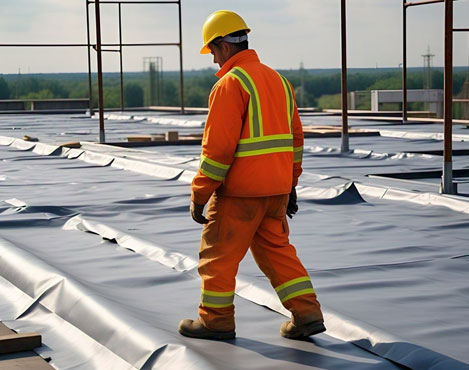
Bituminous paints are made of bitumen or coal tar which is dissolved in mineral spirit or naphtha. Bitumen is also known as asphalt which is a sticky, black, and highly viscous liquid or semi-solid form of petroleum. Bitumen is commonly used for waterproofing flat and low-sloped roofs. It provides a protective barrier against water penetration, preventing leaks and water damage to the building structure.
Bituminous paint is a type of bituminous coating product that provides weatherproofing and corrosion resistance to the elements. It has good adhesive properties. A bituminous coating is used to build a vapour-proof and protective coat in accordance with its formulation and polymerization grade. The bituminous coating is also known as asphalt coating.
Bituminous paint is strong, waterproof, durable and economical. It resists manufacturing harsh chemicals and UV light. It also protects surfaces from rust.